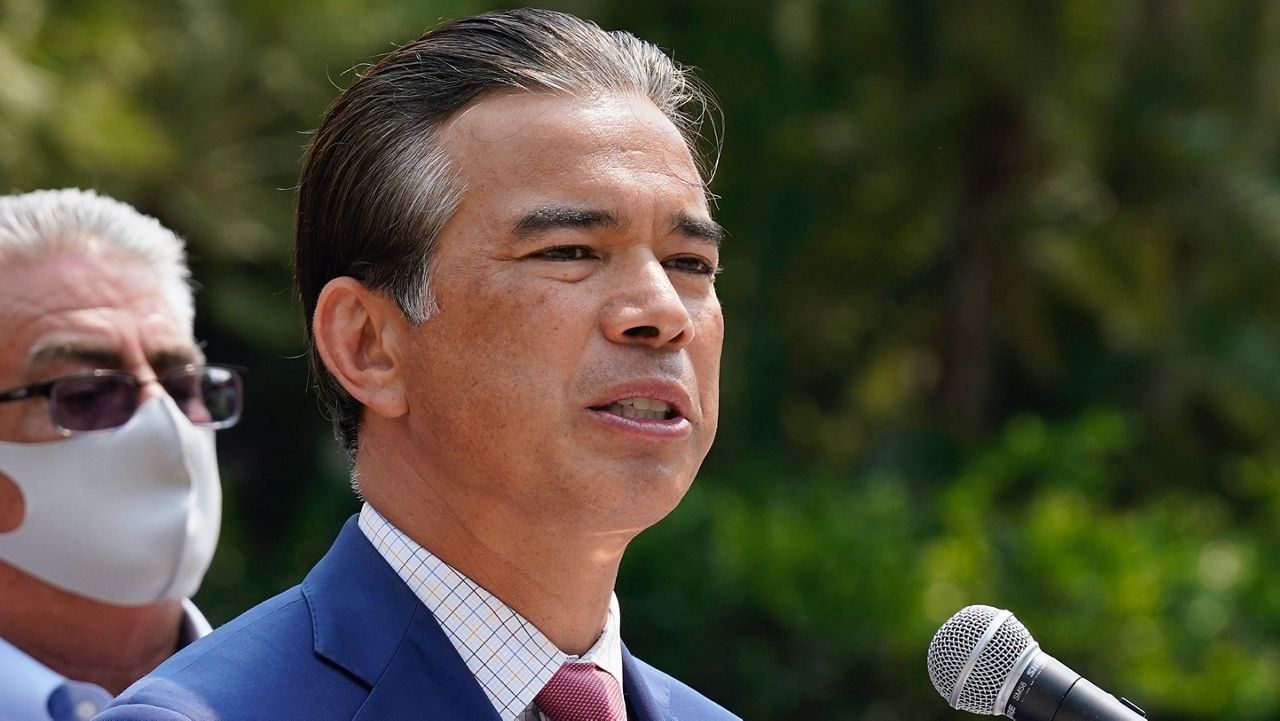Twenty-one attorneys general from across the country, including California’s Rob Bonta and New York’s Letitia James, have joined to file two separate amicus briefs supporting the federal government lawsuits seeking to stop enforcement of near-total abortion bans in Idaho and Texas.
The amicus curiae briefs (filings that allows unrelate parties to provide expertise in lawsuits) argue that both Idaho’s 2020 abortion law — which makes it a felony for anyone to perform, assist in, or attempt to perform an abortion — and Texas’s 2021 six-week abortion ban are in conflict with the federal Emergency Medical Treatment and Labor Act. The law, enacted in 1986, ensures public access to emergency medical services regardless of ability to pay.
“If a patient comes into an emergency room with a medical emergency jeopardizing the patient's life or health, the hospital must provide the treatment necessary to stabilize that condition,” Attorney General Merrick Garland said shortly after the Department of Justice filed United States of America v. Idaho in federal district court. “And this includes abortion when that is the necessary treatment. Any state law that prevents a hospital from fulfilling its obligations under EMTALA violates federal law.”
The Idaho law, which was signed by Gov. Brad Little in 2020, allows for defendants to cite a need to prevent the death of a pregnant woman, or that the pregnancy was due to rape or incest reported to law enforcement. It included a provision for the law to take effect upon the overturn of Roe v. Wade — which happened when the U.S. Supreme Court ruled in Dobbs v. Jackson Women’s Health Organization in June.
“Let’s be clear: Whether in an outpatient setting or in an emergency room, abortion care is health care. Idaho’s radical ban on abortion, even in cases of medical emergency, unconscionably endangers the lives and health of pregnant people in Idaho and beyond. Federal law protects an individual’s right to access lifesaving emergency healthcare — including abortion,” Bonta said in a press release regarding the Idaho amicus brief.
In a separate press release Tuesday, James said that states restricting abortion access “are endangering people’s lives and creating a public health crisis.”
In Texas v. Becerra, Texas filed a federal district court lawsuit against Secretary of Health and Human Services Xavier Becerra to prevent the federal government from enforcing EMTALA’s requirement to provide emergency abortion care. Texas’s Senate Bill 8 bans abortion upon detection of embryonic cardiac activity, which can happen as early as six weeks into pregnancy — before many people may know that they’re pregnant.
S.B. 8, the opposing states' amicus brief says, may force abortion-seeking patients in Texas to travel to nearby states like New Mexico and Colorado for their emergency care.
“These states would thus experience additional pressures on their already overwhelmed hospital systems, especially in rural and underserved areas that would be most significantly affected,” the brief said.
According to the Texas Policy Evaluation Project, at least 5,574 Texans sought abortions out of state after SB 8’s passage — about 1,400 per month. On top of that, participants in a TxPEP research study reported delays by providers that “made it impossible to access abortion care in Texas within the time constraints of SB 8, even if they found out that they were pregnant shortly after missing a menstrual period.”
California and New York were joined in the brief by the attorneys general of Colorado, Connecticut, Delaware, Hawaii, Illinois, Maine, Maryland, Massachusetts, Michigan, Minnesota, Nevada, New Jersey, New Mexico, North Carolina, Oregon, Pennsylvania, Rhode Island, Washington and the District of Columbia.



